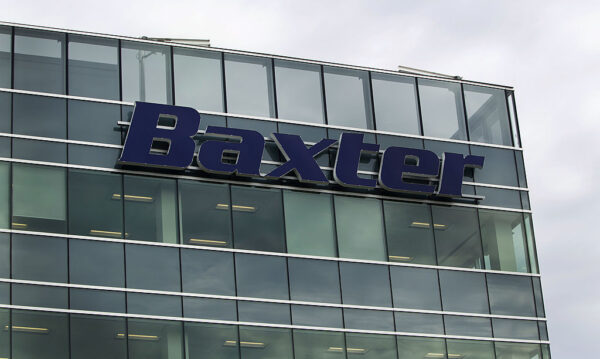
Baxter International, a global healthcare products company with more than $15 billion in annual revenue, kicked off 2023 with the new year’s resolution of becoming streamlined and nimble. Five months into the year, the Deerfield, Illinois-based enterprise is a step closer to its goal, reaching a multi-billion dollar deal to sell its business providing contract services to the biopharmaceutical industry.
The buyers are Advent International and Warburg Pincus. According to the terms of the agreement, the two private equity firms are paying $4.25 billion cash to buy Baxter’s biopharma solutions operation. The deal is expected to close in the second half of this year.

With the Rise of AI, What IP Disputes in Healthcare Are Likely to Emerge?
Munck Wilson Mandala Partner Greg Howison shared his perspective on some of the legal ramifications around AI, IP, connected devices and the data they generate, in response to emailed questions.
Biopharma solutions is essentially a contract development manufacturing organization (CDMO) serving pharmaceutical and biotech companies. For example, this Baxter business handles the manufacturing and packaging of sterile injectable products, such as vaccines. Biopharma solutions accounted for $644 million in 2022 revenue—just 4% of Baxter’s overall sales.
Up until 2021, pharmaceutical manufacturing services, considered too small to be broken out as a separate business segment, were classified in the “other” category in Baxter’s financial reports. Covid-19 changed things, as demand for the production and packaging of coronavirus vaccine products led to strong revenue growth. In 2021, the newly created biopharma solutions business segment accounted for $669 million in sales, up 38% compared to 2020. In its annual report for that year, Baxter attributed the increase to manufacturing and packaging services for the Covid-19 vaccines of multiple companies.
For 2022, Baxter reported $644 million in biopharma solutions revenue. That’s down 4% from the prior year, a decrease Baxter attributed in part to lower revenue from Covid-19 vaccines. Projected biopharma solutions revenue for this year is about $600 million. But in acquiring the Baxter CDMO operation, Warburg Pincus and Advent are betting they can capitalize on growing demand for contract services to the life sciences sector and the value that this demand creates. For example, contract research organization (CRO) PPD was acquired by private equity firms for $3.9 billion in 2011. The CRO’s return to the public markets in 2020 was brief. The following year, Thermo Fisher Scientific acquired PPD in a $21 billion deal.
The sale of Baxter’s biopharma solutions business includes manufacturing facilities and about 1,700 employees in Bloomington, Indiana, and Halle, Germany. As a standalone company, Advent and Warburg Pincus say the biopharma solutions business will be a CDMO serving a range of needs, from clinical-stage manufacturing through commercialization.
“Leveraging our deep sector expertise and significant strategic resources, we believe this partnership can unlock multiple opportunities for growth and help the business realize its full potential by serving blue-chip customers, including Baxter, with high-value, specialized and end-to-end capabilities as a standalone company,” John Maldonado, a managing partner at Advent, said in a prepared statement. “We’re thrilled to partner with [biopharma solutions] to alleviate critical pain points for its customers and to help them provide life-changing therapies to patients around the world.”
Baxter is now joining the ranks of big life science companies that have concluded the best way to grow in the future is by first slimming down in the present. Kenvue, the former consumer products business of Johnson & Johnson, raised $3.8 billion in an IPO last week. A little more than a year ago, Becton Dickinson completed the spinoff of its former diabetes care business, a now publicly traded standalone company called Embecta. In pharmaceuticals, Pfizer and Merck have spun out generic drugs divisions in an effort to streamline operations. Novartis is set to do the same with its generics division, Sandoz. That spinoff transaction is on track for completion in the second half of this year.
When Baxter announced in January its strategy to focus more on hospital products and connected care, most attention focused on the plans to spin off kidney care—a much larger business than biopharma solutions—as an independent, publicly traded company. Among this business’s services is providing technologies used in home dialysis. Baxter reported $3.7 billion in 2022 revenue for its renal care segment. The company has said it expects the spinoff to happen by July 2024. This new company already has a CEO in waiting. Last week, Baxter appointed Chris Toth, the former CEO of Siemens subsidiary Varian, to be the kidney care company’s CEO. Until the spinoff happens, he will serve at Baxter as executive vice president and group president, kidney care.
After taxes, Baxter expects the proceeds of the biopharma solutions sale will be about $3.4 billion. The deal still needs to pass regulatory muster. Baxter said proceeds from the sale will go toward reducing its debt, consistent with the strategy it outlined at the beginning of the year.
Photo: Brent Lewin/Bloomberg, via Getty Images














